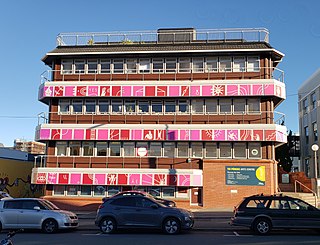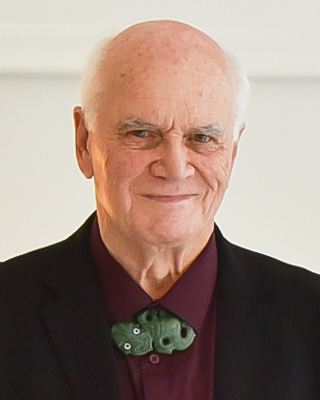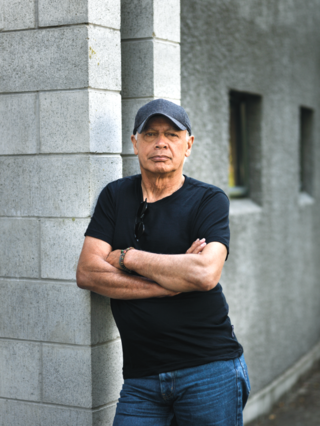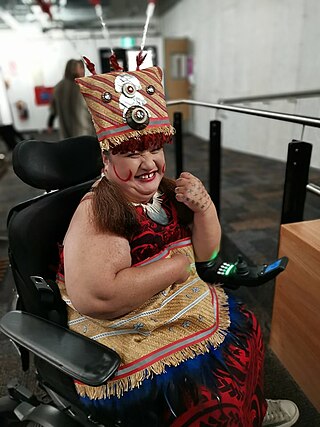Related Research Articles
The Arts Council of New Zealand Toi Aotearoa (Creative New Zealand) is the national arts development agency of the New Zealand government, investing in artists and arts organisations, offering capability building programmes and developing markets and audiences for New Zealand arts domestically and internationally. Its funding consists of approximately 30% central government funding and the remaining amount from the Lotteries Commission. In 2014/15, the Arts Council invested a record $43.6 million in New Zealand arts and arts organisations.

The Toi PōnekeArts Centre, is the New Zealand capital's creative production facility and support complex. It was established between 2003 and 2005, and was formally opened by Mayor Kerry Prendergast in July 2005. For twelve years previous, the city's arts centre had been based at the much smaller Oriental Bay Rotunda. The new complex, spread across two buildings and seven floors, has a focus on active creative production in all disciplines, and on the further advancement of cultural identity in New Zealand. It is located in the bustling and dynamic Upper Cuba Street neighbourhood of Wellington.
Huia Publishers (HUIA) is a book publishing company based in Wellington, New Zealand established in 1991. HUIA publish material in Māori language and English for adults and children.
Manos Ross Nathan was a New Zealand ceramicist. Born in Rawene, Hokianga, to Eruera and Katina Nathan, he was of Māori descent on his father's side and Greek (Cretan) descent on his mother's side.
Areta Rachael Wilkinson is a New Zealand jeweller.

Rosanna Marie Raymond is a New Zealand artist, poet, and cultural commentator and Raymond was recognised for "Pasifika artists practicing contemporary and heritage art forms in Aotearoa," winning the Senior Pacific Artist Award Winner of 2018, at the Arts Pasifika Awards through Creative New Zealand.

Lindah Aaron Lepou is a New Zealand-Samoan fashion designer. Her work is included in the permanent collection of Museum of New Zealand Te Papa Tongarewa.

Kerry Ann Lee is a visual artist, designer, and scholar in design at Massey University College of Creative Arts, in Wellington, New Zealand.
Maggie Rainey-Smith is a novelist, poet, short story writer, essayist and book reviewer. She lives in Wellington, New Zealand.

Matekino Lawless is a New Zealand master weaver from Ngāti Maniapoto and Ngāti Whawhakia iwi. Her work is held at marae, in private collections, in the collections of New Zealand and international museums, and at the Headquarters of the United Nations.

The Mata Aho Collective is a group of four Māori women artists, Erena Baker, Sarah Hudson, Bridget Reweti and Terri Te Tau. They are known for their large scale fibre-based art work.
Raymond Stanley Boyce was a British-New Zealand stage designer, costume designer and puppeteer and puppet designer. Boyce was part of the start professional theatre movement in New Zealand influencing the artistic landscape with his design knowledge. Boyce designed hundreds of theatre shows and was named an Arts Foundation of New Zealand Icon in 2007.

Mary Tupai Ama is a Cook Islands-New Zealand artist and community arts organiser.

Raymond Henry "Sandy" Adsett is a New Zealand visual artist and educator. He is acknowledged for championing the art of kōwhaiwhai painting, creating a context for the artform within the development of contemporary Māori art.
The Te Putanga Toi Arts Access Awards, formerly called the Big 'A' Awards, are New Zealand arts awards, presented annually by Arts Access Aotearoa.

Russell Ian Kerr was a New Zealand ballet dancer, choreographer, and producer. After spending the 1950s dancing in Europe, he returned to New Zealand where he was instrumental in the development of the New Zealand Ballet Company and ballet as an art form in New Zealand. He was recognised as one of New Zealand's most significant living artists in 2005 with an Icon Award from the Arts Foundation of New Zealand.

Robert Hans George Jahnke is a New Zealand artist and educator, well-known for his graphic and sculptural artwork. He is a professor of Māori visual arts at Massey University.

Lusi Faiva is a New Zealand-Sāmoan stage performer and dancer and a founding member of Touch Compass. She was recognised for her work with a 2020 Pacific Toa Artist Award at the Arts Pasifika Awards and in 2021 received an Artistic Achievement Award from Te Putanga Toi Arts Access Awards.
Selwyn Frederick Muru, also known as Herewini Murupaenga, is a New Zealand artist of Māori descent. His life's work includes, painting, sculpture, journalism, broadcasting, directing, acting, set design, theatre, poetry and whaikōrero. Muru was awarded the Te Tohu Aroha mō Te Arikinui Dame Te Atairangikaahu | Exemplary/Supreme Award in 1990 at the Creative New Zealand Te Waka Awards.
References
- ↑ "Arts Council of New Zealand Toi Aotearoa Act 1994 No 19 (as at 30 April 2014), Public Act – New Zealand Legislation". www.legislation.govt.nz. Retrieved 11 November 2018.
- ↑ "Humans of Hendo - looking through a new lens wins art award". NZ Herald. 2 August 2018. Retrieved 11 November 2018.
- ↑ Thomas, Carly (24 May 2017). "Te Manawa wins award for being inclusive". Stuff.co.nz. Fairfax Media. Retrieved 11 November 2018.
- 1 2 "Prison programme leading the way". NZ Herald. 15 August 2016. Retrieved 11 November 2018.
- 1 2 Ling, Jenny (2 August 2018). "Northland prison arts teacher scoops Access awards". Stuff.co.nz. Fairfax Media. Retrieved 11 November 2018.
- ↑ "Arts Access Aotearoa Awards 2015: Dance doing its bit to increase access to arts for all". Dance Aotearoa New Zealand. 7 July 2015. Retrieved 11 November 2018.
- ↑ "Art awards recognise Rodney Bell, Duncan Armstrong". NZ Herald. 7 July 2017. Retrieved 11 November 2018.
- ↑ "Isaac Theatre Royal's CEO recognised at Arts Access Awards". Manatū Taonga Ministry for Culture and Heritage. 23 July 2015.
- ↑ Chumko, Andre (5 July 2017). "Inclusive hotel earns Olivier Lacoua an Arts Access Accolade". Stuff.co.nz. Fairfax Media. Retrieved 11 November 2018.
- ↑ "Arts for all on the move". The Big Idea. 16 September 2011. Retrieved 11 November 2018.
- ↑ "Auckland mayor applauds arts advocates". Creative New Zealand. 24 June 2013. Retrieved 11 November 2018.
- ↑ "Wellington Museum Acknowledges Arts Access Aotearoa". Museums Wellington Te Curio Cabinet. 30 November 2017. Archived from the original on 11 November 2018. Retrieved 11 November 2018.
- 1 2 "RNZB recognised for making the arts accessible to all". Royal New Zealand Ballet. 2017. Retrieved 11 November 2018.
- ↑ "Áine Kelly-Costello on Making Art and Music More Accessible". Radio New Zealand. 15 August 2018. Retrieved 11 November 2018.
- ↑ https://artsaccess.org.nz/arts-for-all/uploads/sites/artsaccess/files/images/2014%20creative%20spaces/Arts_For_All_Final_Website_Dec_2014.pdf [ bare URL PDF ]
- ↑ Christian, Dionne (16 November 2016). "Not quilty: A stitch in time saves nine". NZ Herald. Retrieved 11 November 2018.
- ↑ "Access to ballet for women prisoners". The Big Idea. 20 December 2017. Retrieved 11 November 2018.